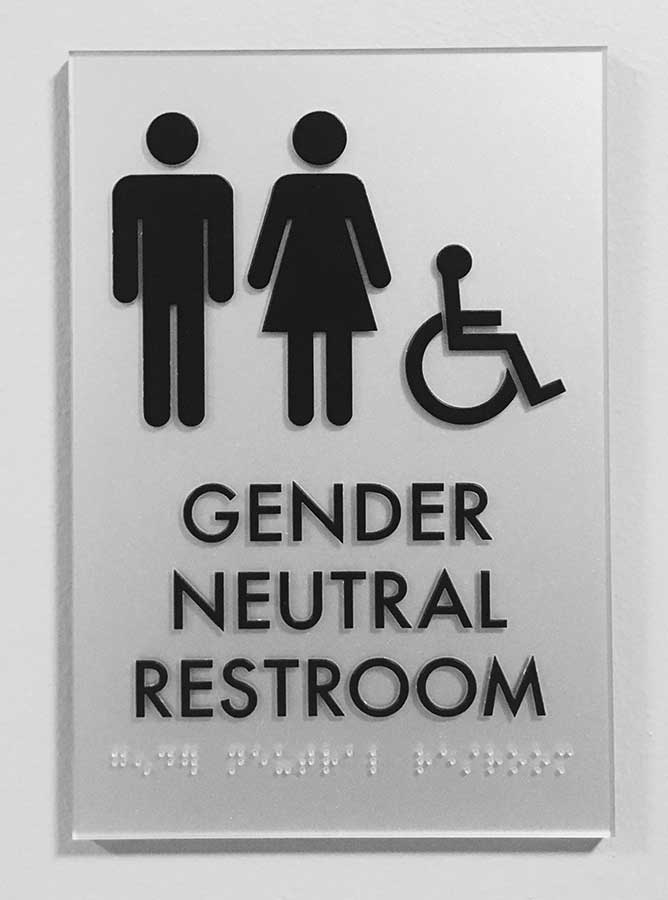
D’Andre Fisher, North Seattle College’s Associate Vice President for Equity, Diversity and Inclusion (EDI) is all about creating safe spaces for us to thrive in. Establishing public and private environments based on EDI principles is no easy task, but Fisher has proven himself skilled at leading others in forging harmonious spaces where we may learn to better share ideas and respect one another's differences. That said, the process of drilling deep into those core values that join and divide us is a daunting task, but one Fisher is particularly excited to share in his new class, Gender and Social Identity Theories.
As an undergraduate at the University of Oklahoma, Fisher had the benefit of studying under the founder and creator of the Human Relations Department, Dr. George Harrison. Fisher was so inspired by this learning experience he remained in the program to earn his Master’s degree. He ultimately found himself hired by the college as the Special Assistant to the Vice President of Operations in the Office of University Community (Diversity and Inclusion Office). “This is where I really learned the importance of understanding how we develop our social identity, as well as the value in understanding how we as a society have moved and shaped the identities of marginalized cultures,”’ says Fisher. 
Taking a long look at the socially constructed ways by which we understand gender and identity is a particular challenge because we must unpack some core tenets of our personal beliefs. In his class Fisher plans to look at how certain social forces shape those perceptions. “It’s historical. It is part of the foundation that we consider part of being American,” he says. “With this class I am aware it is being run and taught in a very westernized and Americanized way of thinking of social identities. I plan to bring that into the classroom as a way of recognizing that cultures play different roles. That’s what I mean by ‘historical’ and ‘foundation.’ We have separated ourselves by class, race and gender identity, whether that is thanks to your religion, non-religion or your able body. All of these different separations and aspects of social identity we have developed as a society create differences that inevitably become marginalizing as they are not your prominent or your privileged identities.”
According to Fisher, those historical and foundational components that comprise our identities are reinforced by our In Groups and our Out Groups. “Our In Group defines us as individuals because that is where we feel loyal or respected,” says Fisher. “For instance, for me as a self-identified African American male, the In Group that I identify and show loyalty to most would be the African American male and female communities. Those are what I consider my In Groups, if I was just looking at race. If you are veteran, that could be your In Group. As I am not a veteran, that would be considered an Out Group for me.”
In Groups and Out Groups reinforce and shape one’s identity in both positive and negative ways. “For instance, one of the great ways of learning what makes your In Group and Out Group comes from looking at how your perspective is shaped,” says Fisher. “Young men are brought up to understand the value of masculinity by their In Group. You are self-identified as a young man if you throw a football and it goes two inches past your foot. You would then get talked about with people saying, you throw like a girl. That tells me, ‘Oh, my Out Group are girls and my In Group are guys.’”
Though we may seek to recognize and celebrate contrasts with different cultures or Out Groups, Fisher says the real challenge comes in recognizing that we are not hard-wired to truly respect and value those differences. “We say, ‘Oh my goodness, this is a different type of religion; this is a different type of culture, so let’s eat what they eat and celebrate them in that way!’ We play at a very modernized, westernized, Euro-centric celebration of what different cultures are, but if you seek to truly value them then you  have to recognize that there is a difference in the role that you play that makes that difference difficult. Not only should we celebrate, but we must ask how we can respectfully value another culture that is not our own. I think that’s the difficult thing. An example for me as an African American male is that I believe that during the month of February we should all celebrate the life of Martin Luther King. I believe in celebrating things in my culture that I value but if I were really able to celebrate my culture and celebrate myself, I would be able to walk into my work as an associate vice president with my do-rag on and practice things I do in my culture that I should still feel comfortable about doing. I don’t think that we are there yet. That’s the difference in truly celebrating a culture versus saying that you celebrate something while not truly respecting it.”
have to recognize that there is a difference in the role that you play that makes that difference difficult. Not only should we celebrate, but we must ask how we can respectfully value another culture that is not our own. I think that’s the difficult thing. An example for me as an African American male is that I believe that during the month of February we should all celebrate the life of Martin Luther King. I believe in celebrating things in my culture that I value but if I were really able to celebrate my culture and celebrate myself, I would be able to walk into my work as an associate vice president with my do-rag on and practice things I do in my culture that I should still feel comfortable about doing. I don’t think that we are there yet. That’s the difference in truly celebrating a culture versus saying that you celebrate something while not truly respecting it.”
Fisher says the class environment for Gender and Social Identity Theories will be a very interactive and welcoming one. “I am a call and response type of person,” he says. “I’m a lifelong learner, even while having the privilege to be the ‘instructor’. That means I learn from my students—I learn from what they bring into the space. I am against the banking method where we as instructors just deposit, deposit, deposit information into the students and then teach to the test. That’s something I do not believe in because everybody has their own learning styles. Our first couple of classes will be about building a true safe space and true trusting community within our classroom because this work is very difficult and you have to be able to have trust with the people before you have these conversations.”
Gender and Social Identity Theories will offer learning opportunities sure to benefit all, but Fisher believes that can only happen if students are open to being challenged. “Those who would be most challenged by this class are those who identify with cultures that have a lot of privilege,” says Fisher. “For me, I always consider my privilege as a male, I challenge myself every time in this class because being male comes with certain privileges.”
As a class focused on the fundamentals of identity, Fisher says establishing a foundation of understanding is paramount. “Once we understand why identities are so important to most people, then we will start to grasp why gender is important along with using the right pronouns. Then we can move forward into respecting people’s identities and the value in what they bring to the table.”
Learn more about Gender and Social Identity Theories.